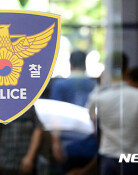[Opinion] Zzagtung
Zzagtung is a word that refers to fake brand goods. It is an opposite concept to genuine goods, real goods, and originals, and was recently listed in the Korean dictionary as slang. There is a theory that such a term of unknown nationality was created when the Korean word, gazza (fake), became zzaga and then was abbreviated to zzag. It was later combined with the word tung, which implies low quality; however, nobody knows for certain the origin of the term. It was in the late 1990s that Korea succeeded Hong Kong as the paradise of fake goods when international designer products arrived in Korea on a large scale. Now, with a catalog, fake goods can be produced in only 24 hours.
▷ Fake goods vary greatly, from European high-class apparel and accessories such as Ferragamo, Louis Vuitton, and Gucci, to American casual and footwear, including Puma, Bean Pole, and Nike. Fake products have their own rankings, and A-rated zzagtung costs as much as half the price of the real goods. While we can see copycat fake products, there are also parody goods, which switch the brand name Puma into Pama, Pima, or Biman, Nike into Nice or Mike, and Bean Pole into Bean Gone. Recently, fake production has been extended to food and snacks, such as 信Namyun (辛Ramyun), 生Audon (生Udon), Onion Rangs (Onion Rings), and Jollybong (Jollypong).
▷ In Korea, fake products are popular because Koreans have a preference for brand-name goods. In Europe and the United States, usually the rich buy designer goods, but in Korea, even ordinary citizens are blindly in love with these products. It is because of the socio-psychological characteristics of Korean people, who place a higher value on how their appearance is viewed by others than what their social status or insides are like. Some time ago, Guy Sorman, a French critic of civilization, referred to it, saying, Koreans are the most unprecedented Homo Apparentus (appearance-oriented).
Even among people, are there brand and fake goods. Some people are just like fake products though they were born with a silver spoon in their mouth and graduated from a top-ranking college, while others become brand goods with excellent refinement and self-development, making their own way out of an ordinary household. Currently, it seems that Korea has a lot more lustrous zzagtung than genuine brand goods in the countys political, economic, social, and cultural arenas, in general. It is really scary and annoying even to think that this country has become the paradise of fake people, following that of fake goods.
Oh Myung-chul, Editorialist, oscar@donga.com
Headline News
- Medical school quotas expanded after 27 years by 1,509
- ‘Pension replacement rate of 44-45% is negotiable,’ says Lee Jae-myung
- 16 out of 20 food companies see cost ratio decrease in 1st quarter
- Oksana Chusovitina with 8 Olympics under her belt gets injured
- Real income effectively reduced amid inflation hikes







